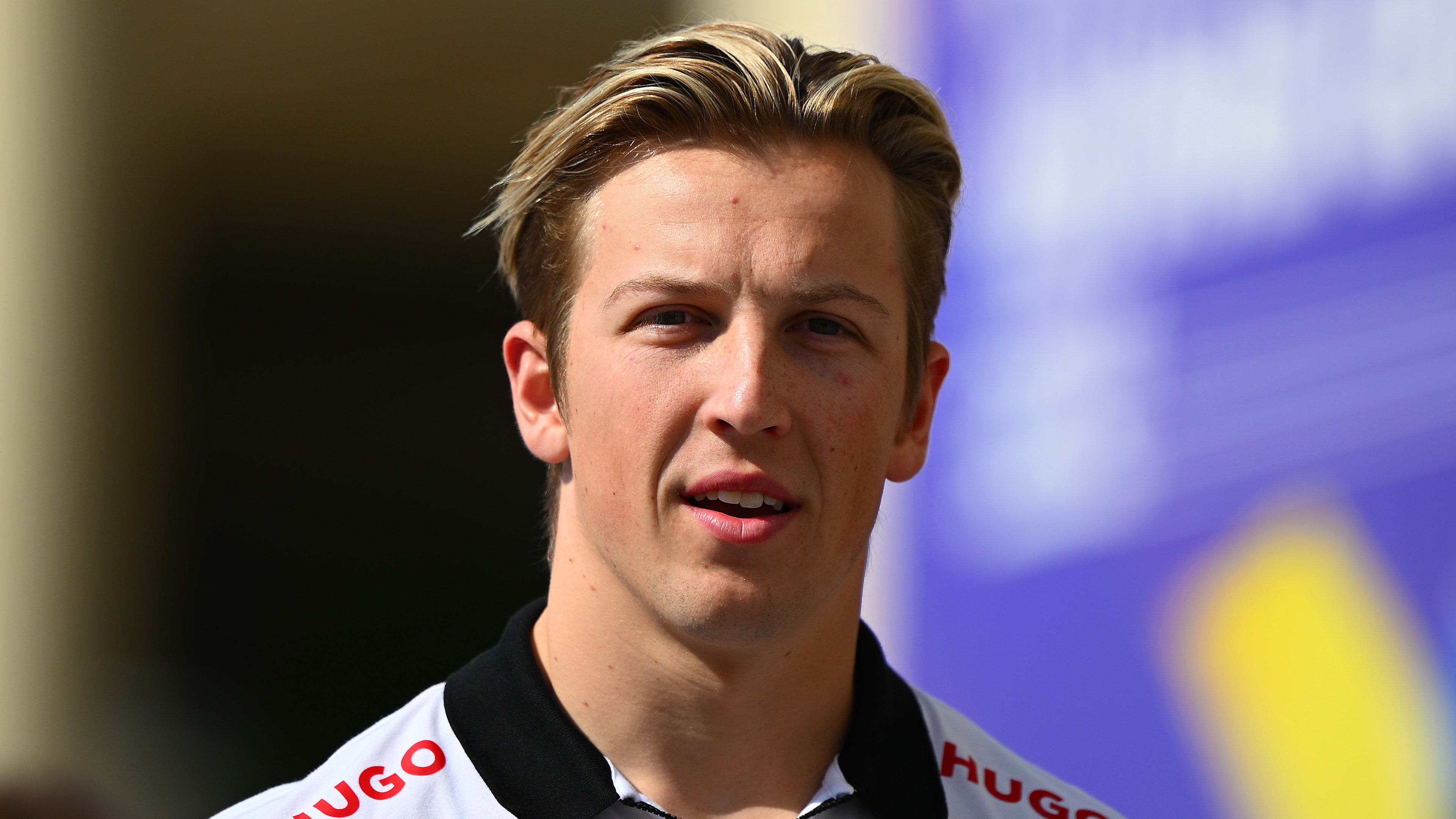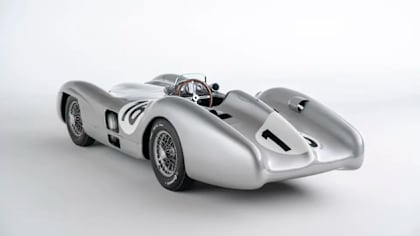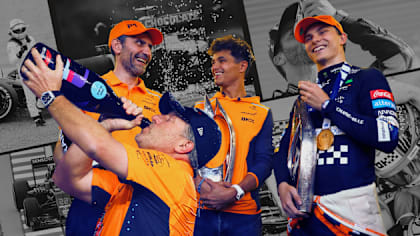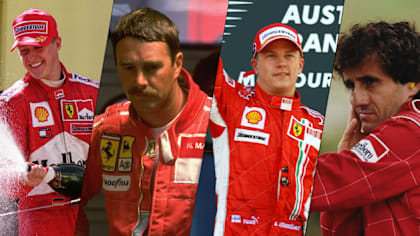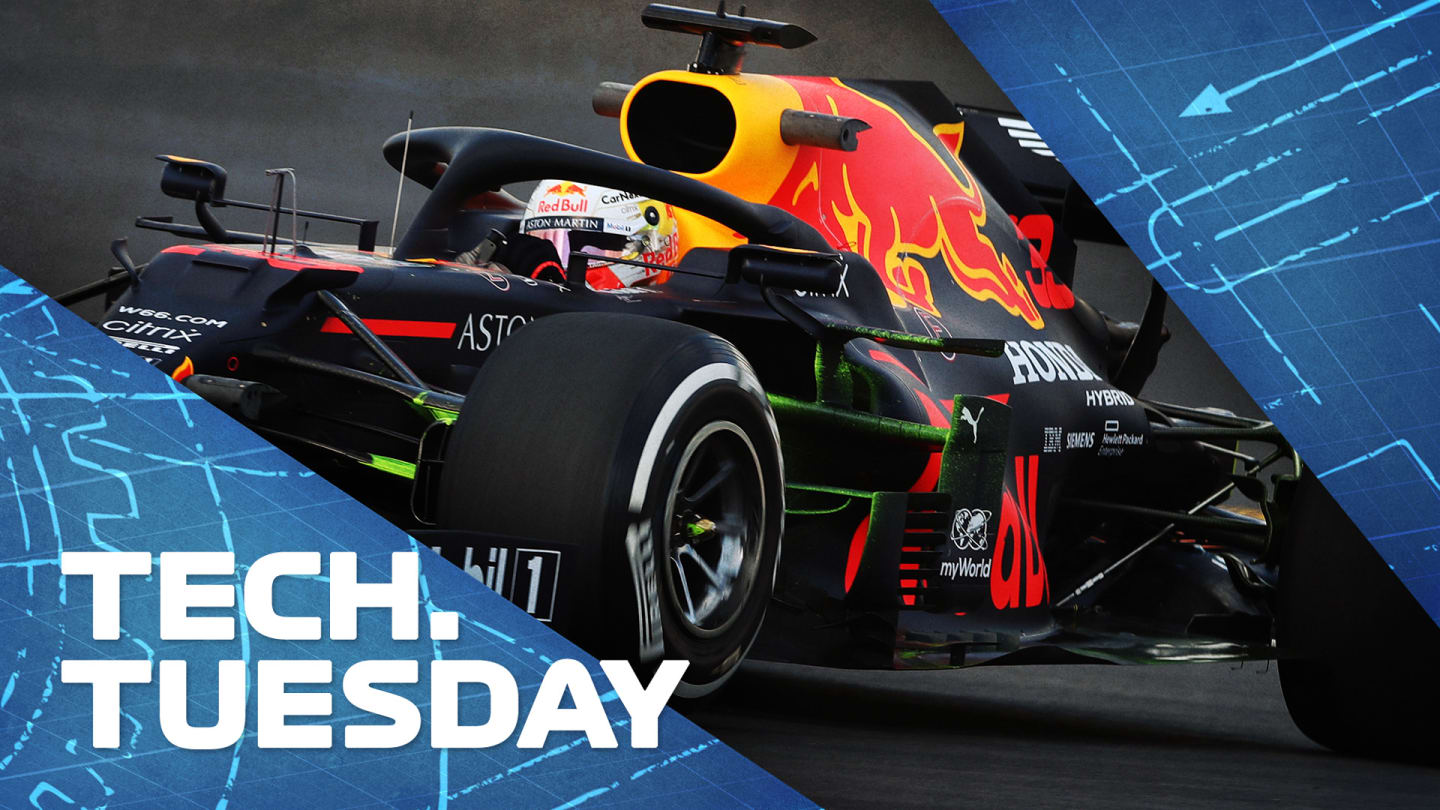
Technical
TECH TUESDAY: How teams like Red Bull and Ferrari are already tackling the 2021 downforce cut

Share

In 2021, regulations will be brought in to cut downforce by an estimated 10%, and teams are already trying to prepare. At the Portuguese Grand Prix, three teams brought in new parts and Mark Hughes evaluates the changes, with technical illustrations from Giorgio Piola.
Squeezed within the Friday practice sessions at Portimao, Ferrari didn’t only introduce the final part of their three-part aerodynamic upgrade. They also took readings from their first attempt at a 2021 floor and accompanying diffuser.
READ MORE: The key performance area being closed off as F1 trims 2021 downforce levels
Red Bull and McLaren have also trialled 2021-spec parts as they all seek to gather information to better define their development direction for next year’s cars. The fact that the 2020 monocoques must remain the same into ’21 (a stipulation introduced earlier this year to contain costs in the wake of the pandemic) has afforded the teams the unique opportunity to trial ’21 parts on existing ’20 cars.
For next season, the floor must be 100mm narrower at the back, tapering down from the front as shown in the drawing below. The current floor slats and openings (circled in yellow below) are banned. The combined effect of this and further changes limiting brake duct fins, F1 hopes, is to reduce downforce by around 10%.
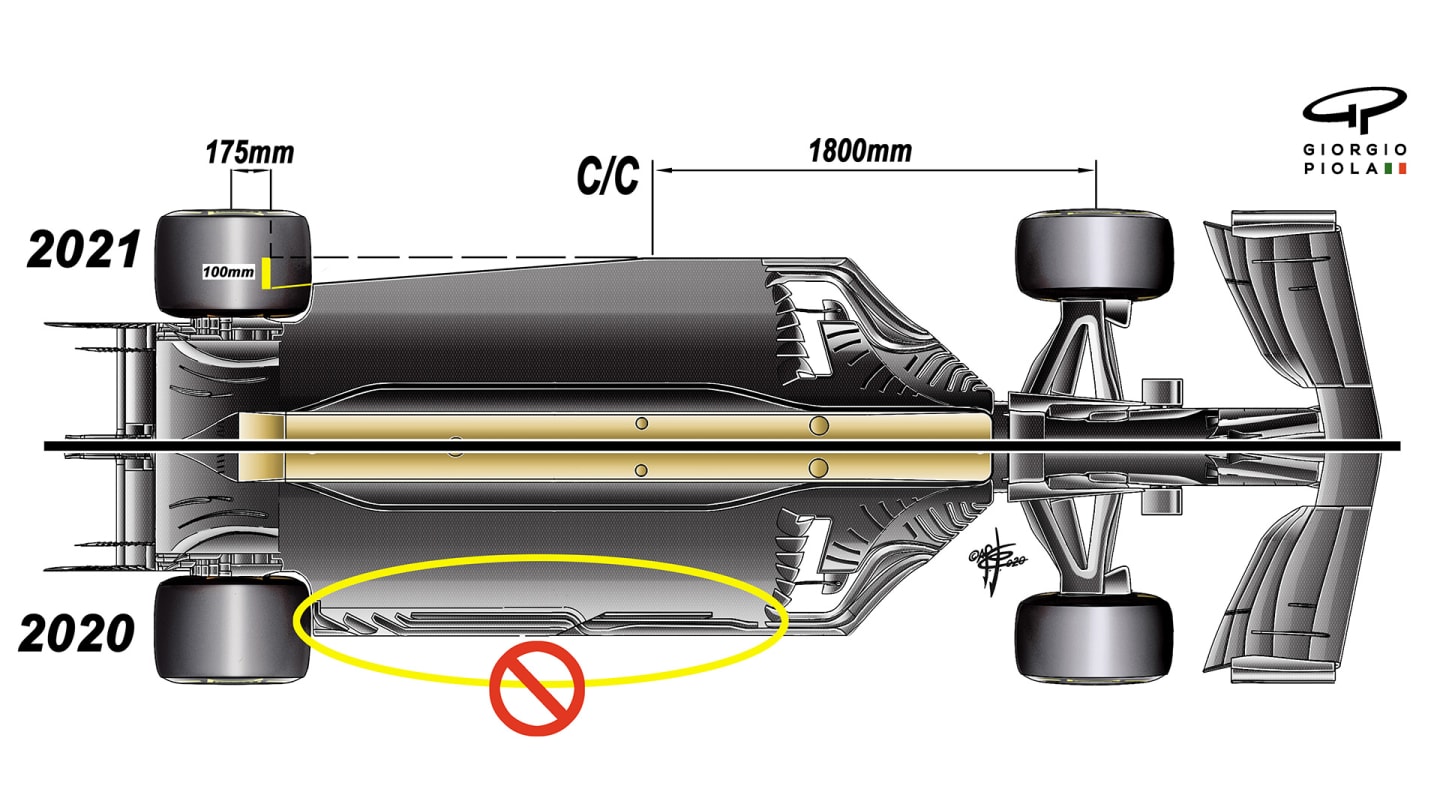
A comparison drawing of the 2020 floor and the 2021 floor, the latter of which loses the floor slates and is tapered in
This is a precautionary measure in anticipation of development gains from taking the downforce levels beyond the design limits of the current tyres if left unchecked.
Opinion among the teams differs about how much of a hit the new restrictions will make upon the downforce. When the initial changes were announced, Racing Point technical director Andrew Green said: “That change is a very significant change, and it makes a really large hit aerodynamically, to a point where I would be surprised if anybody was able to develop their way out of it in the time we have available for 2021.
“So I fully expect 2021 cars to be slower than 2020 cars. That’s probably going to be the case. It will probably close the teams up [at the start of the season] but I still think the big teams will be able to develop their way out a bit quicker.
“It’s a very small change, but the floor has had quite a significant impact on the performance of the car. So [for ‘21] it is not just a redevelopment of the floor, unfortunately; it’s a redevelopment of almost the front-to-back aerodynamics to try to recover it. So it became quite clear quite quickly that our focus has to turn to 2021 because of that.”
At Portimao, the work going on behind the scenes at Ferrari, McLaren and Red Bull in preparation for 2021 was briefly visible. Ferrari’s ’21-spec floor is instantly recognisable by the absence of the array of lateral slots and also by how there is only the smallest of overlap across the width of the rear tyre.
TECH TUESDAY: The RB16 upgrades allowing Red Bull to close the gap to Mercedes
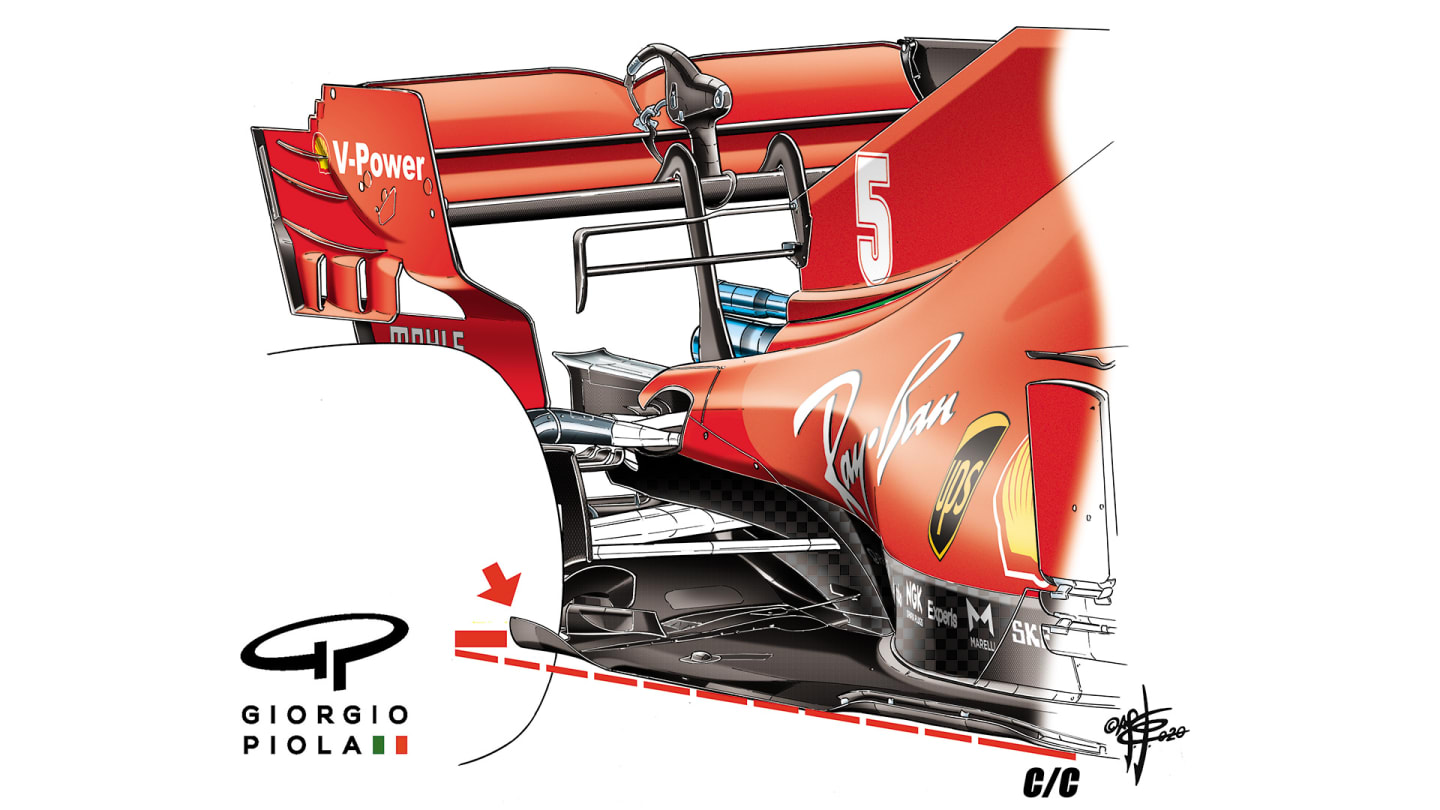
Ferrari's 2021 floor, with the red line showing dimensions allowed by the 2020 regulations
The raised section on the outer-middle section of this floor is not a slot and the floor remains solid here. It will be there purely to condition the airflow as it makes its way towards the back, trying to channel as much of it as possible away from the rear tyre. This floor was briefly tried by Sebastian Vettel in each of the Friday practice sessions.
That floor incorporates also the 2021 diffuser (below) with the regulation 50mm clipped from the bottom of its fences. These fences are turning vanes turning the airflow coming through the underfloor to give it unhindered progress, preventing it piling into the crash structure, which would reduce the airflow’s speed and therefore the downforce generated.
TECH TUESDAY: What exactly are the revised 2021 aero regs – and will they shake up the order?
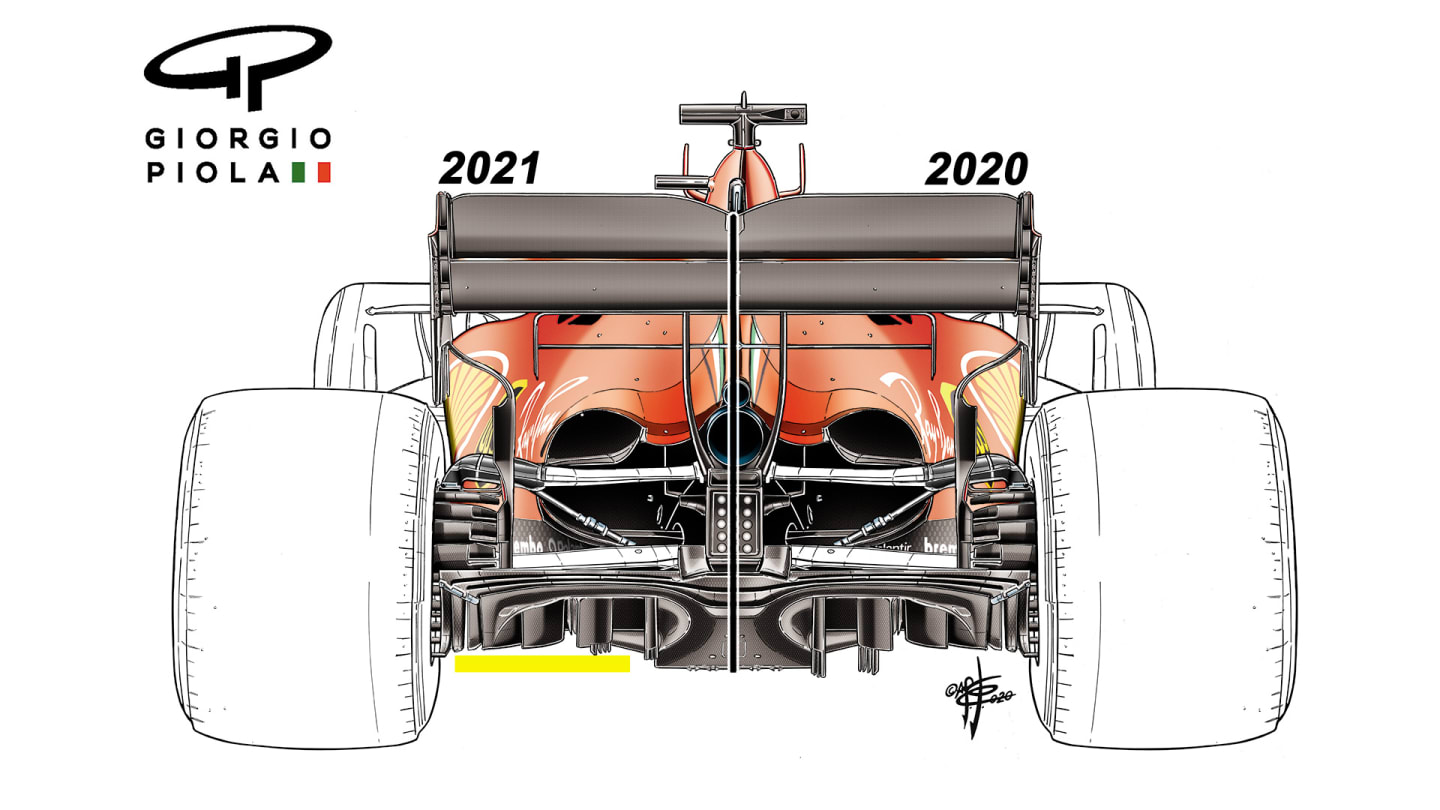
The 2021 diffuser dimensions (L) cut the vanes by 50mm and dramatically reduce the effectiveness of that aero part
Clipping this 50mm from the bottom of these vanes will reduce the effectiveness of the diffuser, especially at the high ride heights it will be running on low-speed corners. Teams will be seeking to claw as much of this lost downforce back as possible, but they need to know that their simulation of these changes on the CFD and wind tunnel models is accurate. Hence the physical floor test where pressure tappings could be taken through the speed range of the car and flo-viz paint could be applied to understand what the flow was actually doing.
READ MORE: Reverse engineering clampdown and super licence revisions approved by FIA
Red Bull did much the same experiment with a 2021-spec floor on Friday (below). McLaren ran their version of the floor as early as Spa.
It remains to be seen just how successful the rule makers will have been in combatting the relentless aero progress of the teams, as exemplified by these early tests.
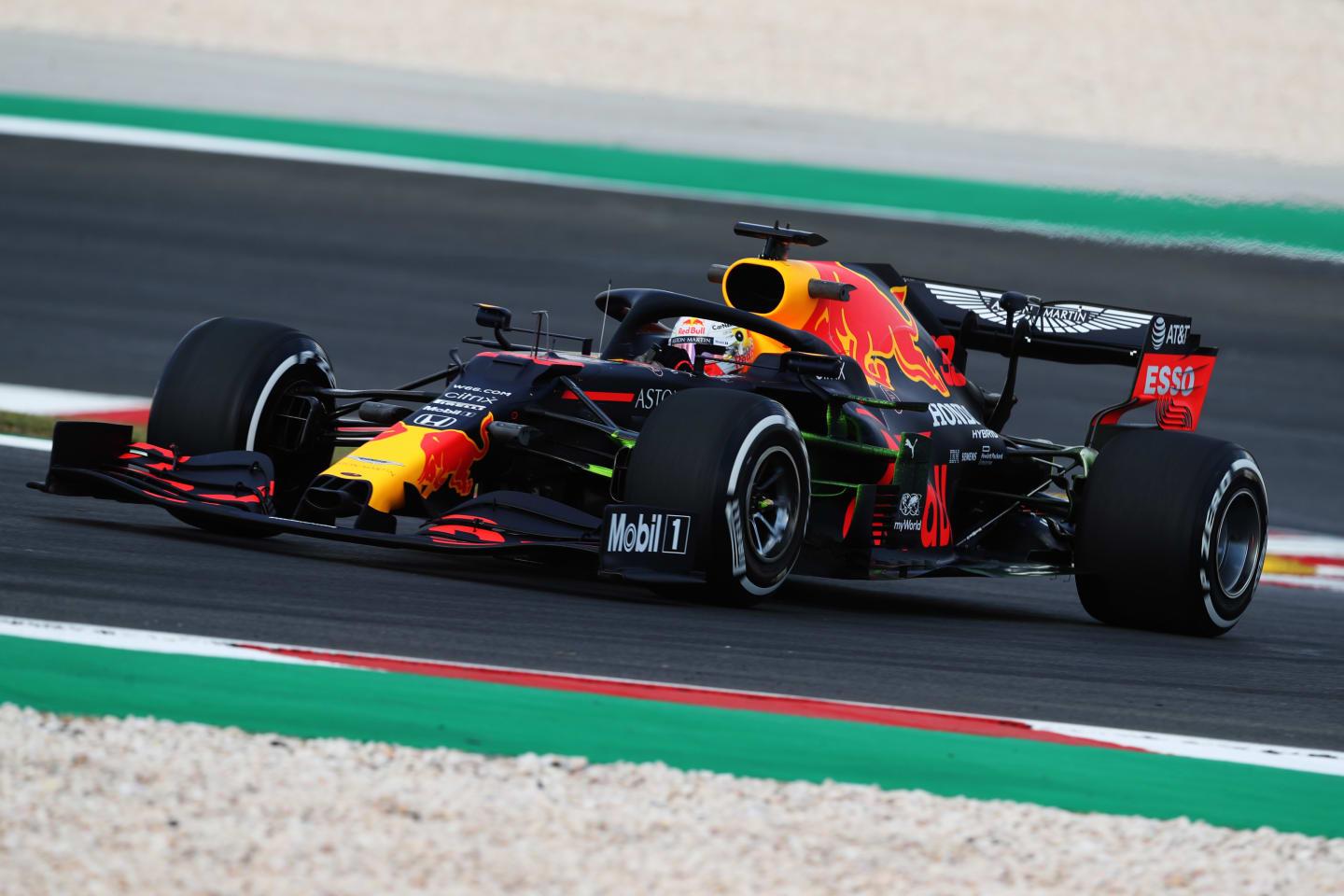
Outlined in red is the new floor that Red Bull trialled in practice at Portimao, with less overlap on the rear wheel
YOU MIGHT ALSO LIKE
News Iconic Mercedes F1 car driven by Fangio and Moss goes up for auction
Feature TIMELINE: From a ‘GP2 engine’ to World Champions – recounting McLaren’s scarcely believable F1 turnaround
Feature 5 Ferrari moves that paid off – and 5 that didn’t – as Hamilton embarks on his new chapter
Feature From record-breakers to underdog winners – 8 drivers who enjoyed success after leaving F1
